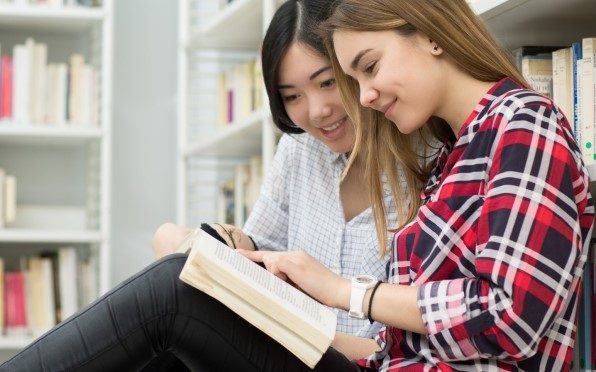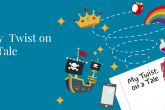
Every year on March 8th, International Women’s Day is celebrated around the world. To mark the occasion, we want to highlight five inspiring women working in the field of education.
International Women’s Day was first proposed in 1910 by women’s rights activist and feminist Clara Zetkin from Germany. The occasion has been celebrated ever since, as a day to honour the social, political and cultural achievements of women.
Here are our five inspiring women:
1. Julia Gillard – Former Prime Minister of Australia
Julia Gillard was born in Wales, but moved to Australia when she was five years old. At university she initially started an arts degree, but became involved in student politics and ultimately graduated with a law degree from the University of Melbourne.
She worked as a lawyer before beginning her 17-year political career, which culminated in her election as the Prime Minister of Australia in 2010. This was the first time a woman had ever held that position. During her tenure, she made a speech on misogyny that was voted Australia’s most unforgettable TV moment.
Julia Gillard retired from politics in 2013 and now acts as the Chair of the Board at the Global Partnership for Education. This organisation aims to coordinate and mobilise global and national goals to achieve quality education for people around the world.
In her own words, “We’ve made progress in education and gender equality – but more must be done.”
2. Ann Cotton – Founder of Camfed
Ann Cotton was born in Cardiff, Wales. Her career in education began in London, with the establishment of an organisation for girls who had been excluded from mainstream schools. In 1991, she went on a research trip to rural Zimbabwe to investigate why the rate of girls enrolling in education was so low. When she realised poverty was the cause, she organised financial support for a group of 32 girls to attend secondary school.
That was the start of Camfed, a charity dedicated to extending girls’ access to education in rural Africa. Since those humble beginnings, their collective efforts have supported over 3.3 million children into education, and improved the educational environment of over 5.7 million children. One of the charity’s most innovative approaches is the creation of CAMA, a pan-African network of Camfed graduates and women leaders who provide local services, use their education to help their communities and support more girls into school.
In her own words, “Just imagine one million girls in Africa, all of whom are from a background of rural poverty; all of whom understand the anxiety and the frustrations of poverty. Just imagine them working in the education and health systems, in politics, in journalism, in law, in engineering, in science – just imagine the power of what they can do to transform our world.”
3. Michelle Obama – Founder of the Global Girls Alliance
Michelle Obama was an exceptional student. By the age of 11, she had been placed in a class for gifted children, and excelled throughout her high school career. She attended Princeton University, studying sociology and running a daycare centre for the children of minority students. After graduating, she went on to study law at Harvard, and worked as a lawyer as well as in non-profit organisations.
As First Lady, Michelle Obama launched Let Girls Learn, a White House initiative aimed at making education available to girls around the world. In her post-White House career, she has been the architect of a major project, the Global Girls Alliance. Their aim? To empower adolescent girls around the world through education, allowing them to achieve their full potential and transform their families, communities, and countries.
In her own words, “The stats show when you educate a girl, you educate a family, a community, a country.”
4. Graça Machel – Humanitarian
Born in rural Mozambique as the youngest of six children, Graça Machel’s future could have been very different had her family not prized education above all else. There was huge support for the young Graça to attend school, and she went to mission schools before winning a scholarship to the University of Lisbon. She studied German, and after graduating worked as a schoolteacher before becoming involved in politics.
She was the Minister for Education and Culture in Mozambique for 14 years, boosting school attendance and slashing illiteracy rates. In the years since, she has been involved in humanitarian work and activism for girls education. She set up a trust which advocates for education for women and children across the world.
In her own words, “There is no equality without empowerment. There is no empowerment without knowledge. Our job is to foster the opportunities so that every woman, child and adolescent can own— and demand— their rights.”
5. Malala Yousafzai – Nobel Peace Prize winner
This 23-year old activist has a long history of advocating for the rights of girls to education. When she was just 11, she wrote an anonymous blog about life in a Taliban-controlled region for BBC Urdu. The following year, she was the subject of a documentary, Class Dismissed, about the schools closed down by the Taliban.
Malala made headlines around the world in 2012, when she was the victim of an assassination attempt by a Taliban gunman in retaliation for her public activism. She recovered and continued her work raising awareness of the importance of education for children around the world.
In 2014, she was awarded the Nobel Peace prize for her activism, becoming the youngest Nobel laureate in history. Nowadays she is studying philosophy, politics and economics at Oxford University, and recently published We Are Displaced, a book about the lives of refugee girls around the world, using her platform to share other girls’ stories.
In her own words, “If one girl with an education can change the world, what can 130 million do?”

